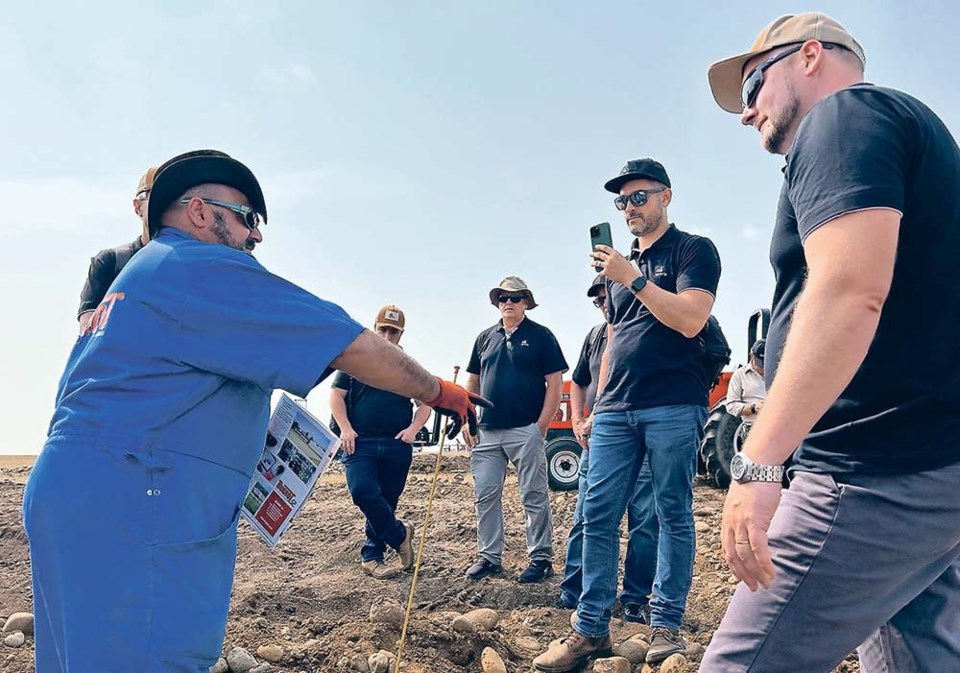LANGHAM, Sask. — Sam Abourjelly, a Lebanese-born man representing an Ontario company, spoke Spanish to a group of Brazilian farmers as they watched a rock pulverizing demonstration.
It wasn’t their native Portuguese, but Abourjelly’s clear Spanish was good enough for them to understand and learn more about the technology available for Canadian farms.
It was an example of how shows like Ag in Motion are becoming global draws for agri-tourism, attracting farmers from around the world who look for ideas that might be applicable back home.
“We only focus on farming, on agriculture,” said Francisco Silva, the tour leader for the Brazilian farmers, who operates an ag-focused travel company in Brazil.
“We’re very happy to be here in Canada. You guys are very, very open and nice to talk to.”
Silva’s group comes from the Agraria co-operative, a 700-member vertically integrated farmers’ organization. It mills wheat flour, flakes and processes corn, crushes soybeans for oil, and malts more barley than any other company in С����Ƶ America.
He has often taken Brazilian farmers to Illinois and Iowa, but came to Canada instead with this group. These farmers grow barley, wheat, corn and soybeans, which is close to what they’re seeing in Saskatchewan, Alberta and Ontario.
“Canada is nice because we see the four crops,” said Silva.
North American farmers have been undertaking agri-tourism trips to Brazil for many years. A surge began in the early 2000s as Brazil’s huge increase in soybean acres in the interior state of Mato Grosso became a major story in world farming and agricultural markets.
Silva’s company has been taking Brazilian farmers around the world since 2011. He recently took a tour to Israel to witness wheat growers grappling with extreme heat and dryness.
This Parana group is seeing some of the same dynamics in Western Canada, where drought conditions are challenging crops.
With climate change predicted to make weather volatility more intense, farmers in Brazil want to get a sense of what that might mean by seeing situations like those in Israel and Canada, Silva said.
Languages other than English and Canadian French could be heard around the show amid questions asked of exhibitors, discussions on crop plots and chats in the hospitality tents.
Most exhibitors don’t know many languages other than English, but Abourjelly was able to provide his demonstration in four languages, if needed: English, French, Spanish and Arabic.
The appearance of the Brazilians at the rock crushing demo wasn’t scheduled, just happy happenstance. Brazilian farmers have the same interest in farm machinery, novel approaches and soil management as farmers everywhere else.
Finding a Spanish-speaking presenter was a stroke of fortune that happens when farmers and the agriculture industry gather, seek ideas and share experiences.
Don't count on social media to deliver news to you. Keep local news a touch away by bookmarking SASKTODAY.ca's homepage at this link.
Click to bookmark our Agriculture section.
Here's why you should bookmark your favourites.




